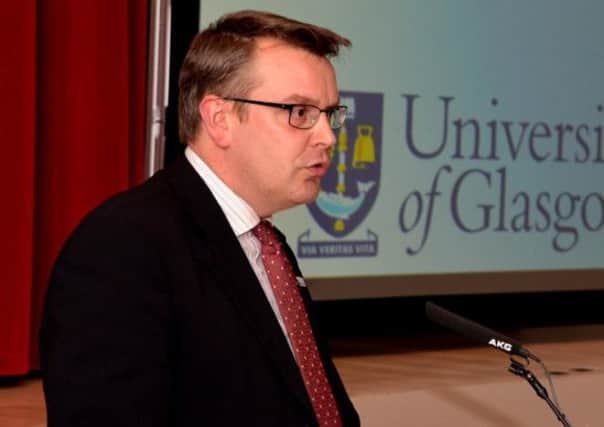Why did Better Together name campaign Project Fear?


And there were specific questions which could only be answered by either the Yes or No camps.
In this article, Professor Adam Tomkins tackles the fourth, and final, question levelled at the No campaign.
Advertisement
Hide AdAdvertisement
Hide AdProfessor Adam Tomkins is a British legal scholar and John Millar Professor of Public Law at the School of Law of the University of Glasgow.
Adam was educated at the University of East Anglia and the London School of Economics. He taught at the School of Law of King’s College London between 1991 and 2000 and became a fellow at St Catherine’s College, Oxford in 2000, before being elected to the John Millar Chair of Law at Glasgow in 2003.
His research interests lie in constitutional theory and history, British, EU and comparative constitutional law, and republicanism.
Adam has published seven books in the areas of constitutional, administrative and European Union law, including Public Law (2003) and British Government and the Constitution (2007, with Colin Turpin), which are among the most widely used by law students in the UK.
Advertisement
Hide AdAdvertisement
Hide AdQuestion: I would like to ask the no side why they gave the name of their campaign project fear?
Adam said: “The truth is that each side employs both hope arguments and fear arguments. Most of what the SNP says about “Westminster” is fear: we should be afraid of the Tories, of the bedroom tax, of austerity, etc, as if there would be no right-of-centre politics in an independent Scotland, no need to balance budgets, and no need to bring our welfare spending under control.
“Likewise, there are plenty of hope arguments on the No side. It is by voting No that we secure the full opportunities of the UK’s rich jobs market to aspiring Scots.
“It is by voting No that we ensure there are no obstacles to trade in the UK’s single market. Instead of “hope” and “fear” what strikes me as characteristic of Yes and No arguments is that so many of them are “hopeless” (on the Yes side) and “fearless” (on the No side).
Advertisement
Hide AdAdvertisement
Hide Ad“The SNP’s insistence that an independent Scotland would be an instant Member State of the European Union simply because we say so was a hopeless position for them to have adopted.
“And Better Together’s insistence that those advocating the break-up of Britain should explain exactly what the implications would be for pensions, for public broadcasting, for currency and for EU membership are precisely the
fearless questions which should be asked and asked again until we get some credible answers.”
Keep checking our website today for further Independence news and the answers to questions posed to Blair Jenkinks and Blair McDougall, from the Yes and No camps respectively.